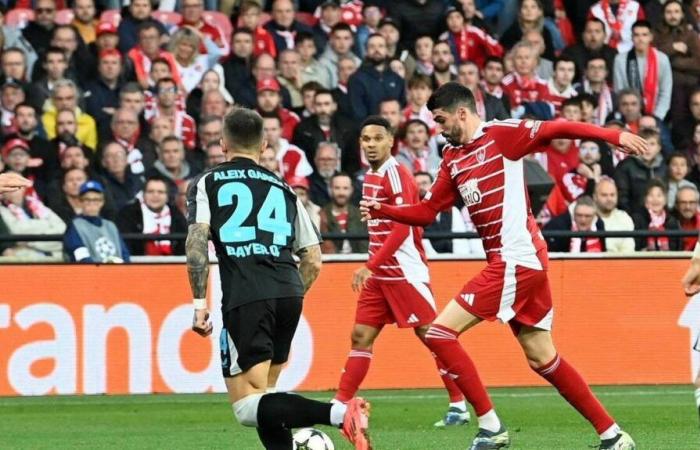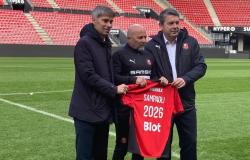
First there was this instant recovery from Hugo Magnetti against Sturm Graz, Stade Brestois' first goal in its history in the Champions League. We then remember this instinctive and powerful strike from Pierre Lees-Melou equalizing against Bayer Leverkusen and putting Roudourou in turmoil. Finally, there is this recovery by lying down (or sliding) by Edimilson Fernandes last Wednesday in Prague.
Three goals from distance, all in the Champions League. It's never a coincidence. “We work on positions on set pieces, corners, always being on the drop-off, agrees Éric Roy. Afterwards, you also need success, that the ball comes to the right place, that there is the right gesture. Whether with Hugo, Pierre or Edi, behind, there was a great finish. So much the better. »
READ ALSO: An extension, a clip, crazy stats… Chardonnet because he’s worth it
“The more you work, the luckier you are”
Obviously, there is an element of success in this type of high-risk gesture. “It would have gone just as well above the stand,” admitted Pierre Lees-Melou with his usual sense of humor, after his first goal in the Champions League.
But not everything is by chance. “I often tend to say, the more you work, the luckier you get, it’s a bit weird,” slips Éric Roy.
If the Swiss' goal on Wednesday comes after a set phase, these long shots result from Brest's desire to press. “It is obvious that the higher you put the team block and the more you are able to recover balls close to the opponent's surface, the more you have the ability to immediately be dangerous,” admits Roy, while specifying that the position of the block depends on the opponent and the desire of his players to press together.
In the first half against Nice, “our team block was too stretched”. Brest fell back, making it difficult to be dangerous. “That's why you have to have some pressing triggers, or players, who at a given moment are also capable of saying: we calm down a little. There are several situations to manage. And then, it's the intelligence of the players that makes the difference. This is called IQ. » The Brest coach has no shortage of them in his team.





